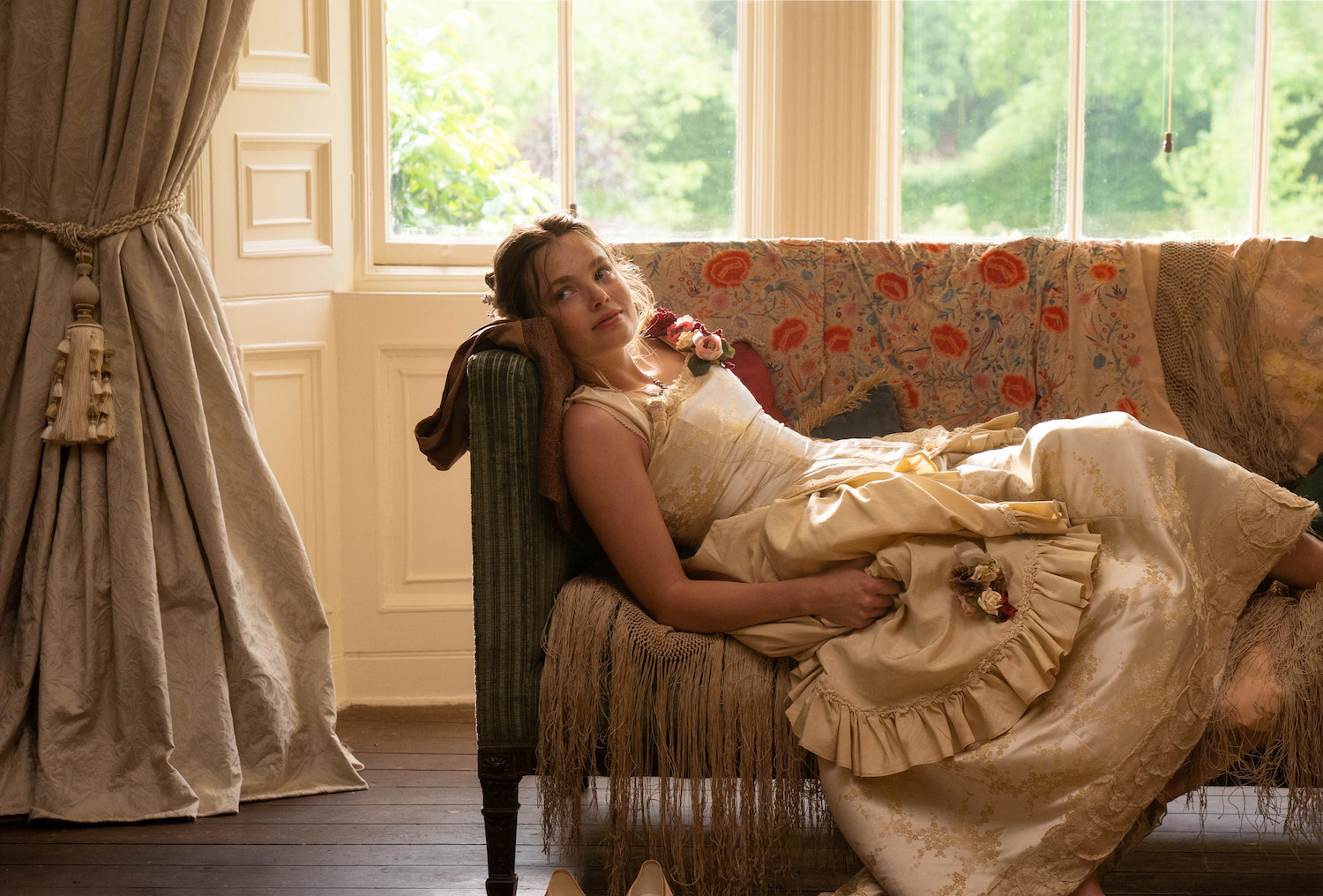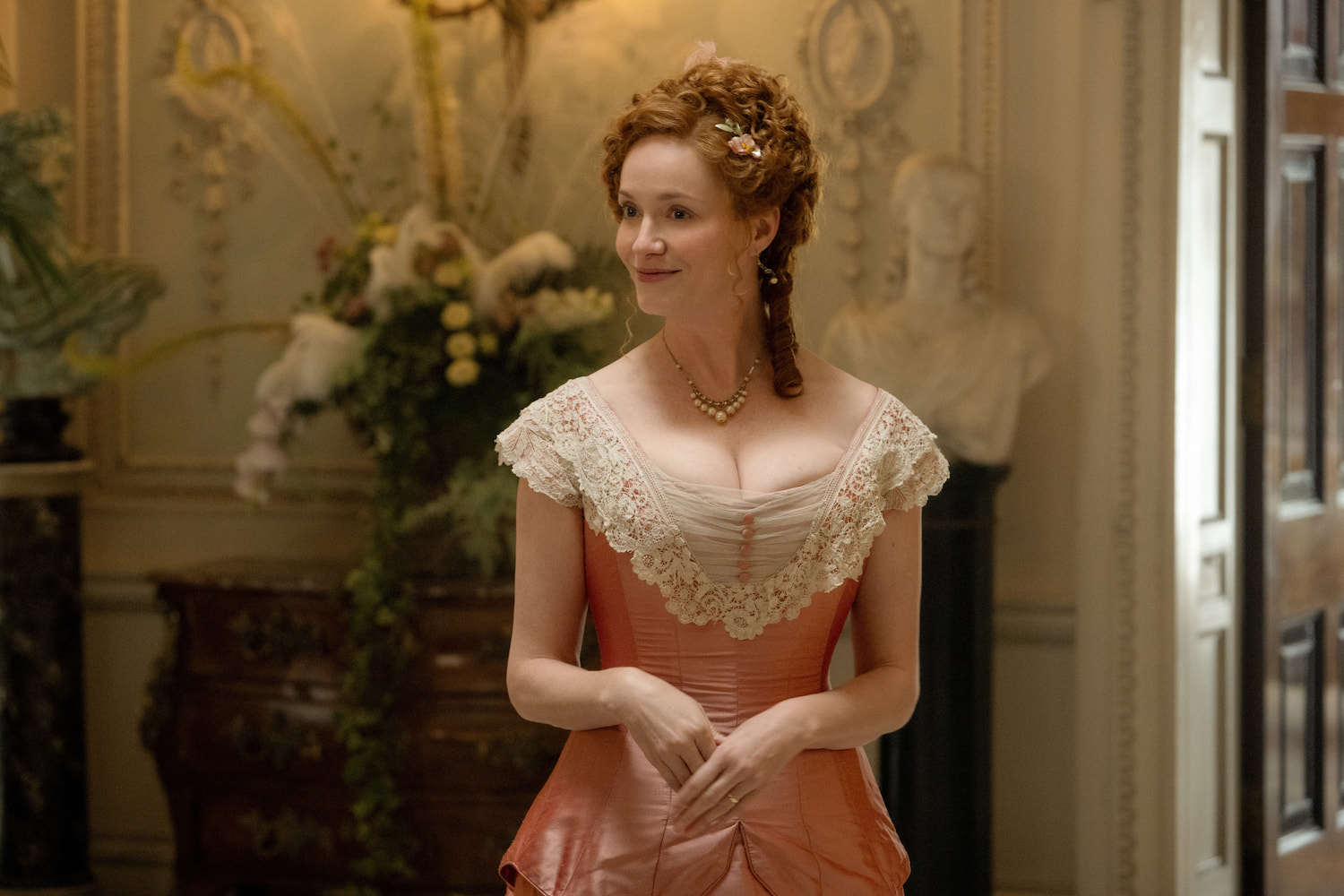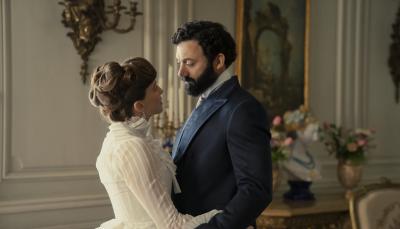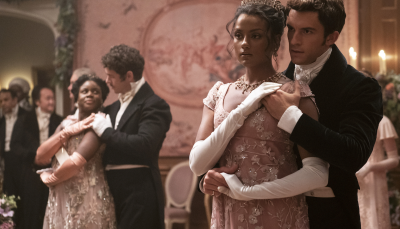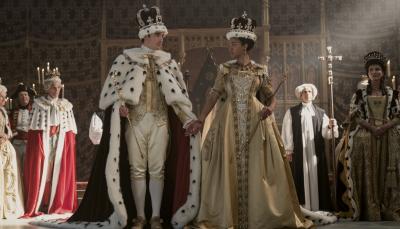Apple TV+'s 'The Buccaneers' Misses the Boat
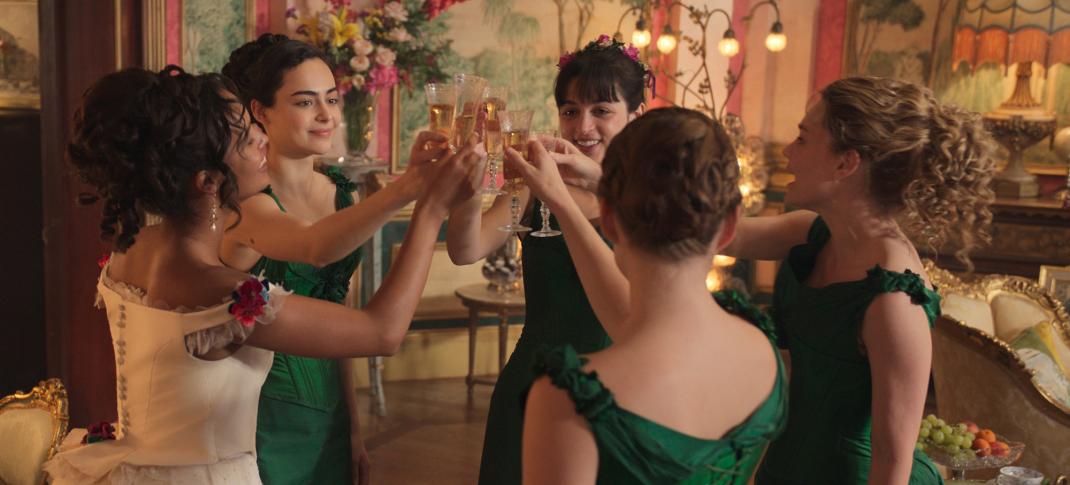
. Kristine Frøseth, Alisha Boe, Josie Totah, Aubri Ibrag and Imogen Waterhouse in "The Buccaneers"
Based on Edith Wharton’s final unfinished novel, the Apple TV+ series The Buccaneers wants to be a feel-good feminist fantasy period piece that appeals to every generation, but its anachronistic liberties only detract from what could have been a great series. Amidst the swirling visuals, which are not as sumptuous as they should be, plot points are overshadowed by distracting inaccuracies. (For example, the bridesmaids’ dresses in the opening scenes have period-inappropriate sleeves, which led this reviewer down a rabbit hole trying to discover when sleeveless dresses and armpit shaving began. The answer? The 1920s.)
There is a glaring lack of hats for both men and women, which casts a stark light on the many modern-style haircuts of the main characters. And when did it become standard for men of stature to marry for love, let alone to kneel when proposing? These details are small but important and undermine overall believability.
Using the contemporary storytelling trope, protagonist Nan (Kristine Froseth) narrates the opening scene — after which narration is essentially abandoned. The show contrasts its period setting with a modern soundtrack, which, to its credit, actually works. The story follows five wealthy young American girls in the 1870s who make their social debut in London. Wharton’s tale of entitled and often frivolous characters is showcased like an endless slumber party. The girls giggle and scream and are generally loud, sometimes drink through the day and night and dine on a never-ending stream of delicacies. In yet another out-of-period example, there are many scenes where the young ladies are largely unattended, socializing and even swimming half-naked with English Lords.
Nan is the 19th-century version of the manic pixie dream girl. She’s quirky, educated, and impulsive. She’s free and speaks her mind; she’s not like other girls. She’s the answer to her love interests’ dreams. There is a clear class privilege in her freedom; a lower-class character wouldn’t get away with the sort of flaunting of norms that Nan does. There’s also birthright privilege: Nan is not yet “in season” and has none of the societal pressures her older sister Jinny (Imogen Waterhouse) does to land a husband and secure her future – yet.
While Jinny struggles to be noticed by Lord James (Barney Fishwick), Nan quickly and unintentionally garners the attention of two separate suitors: Theo, the Duke (Guy Remmers), and Guy (Matthew Broome). The sisters’ friends and travel companions navigate their own romantic entanglements: Conchita (Alisha Boe) is languishing in her marriage to Lord Richard (Josh Dylan), trying to be accepted by his family; Lizzy (Aubri Ibrag) is competing with Jinny for Lord James; and Mabel (Josie Totah) is exploring a Sapphic connection with the strait-laced Honoria (Mia Threapleton).
There is some examination of the culture clash between the Americans and the English, often with the English making snide, cutting remarks and referring to the Americans as “poison” or an “invasion.” But while this English prejudice is on clear display, the show seems confused about whether race is an issue. Is the casting racially neutral, or is it purposeful? It’s hard to tell. Conchita and Guy are openly of mixed race, and it seems uncontroversial. BIPOC are integrated through society (though not in equal numbers), but then there’s a moment when Conchita accuses her in-laws of racism. They offer the 19th-century equivalent of “we don’t see color,” answering: “We simply don’t think in those terms. We’re oblivious.” In a world where Bridgerton, The Gilded Age, and Sanditon have managed to progress beyond such nonsense answers, this is disappointing.
While Conchita feels the sting of not meeting expectations, Nan has no use for convention. She has a near-panic attack at the debutantes’ ball when the eligible ladies are paraded out “like cattle,” complete with lot numbers. Nan rejects the notion of following class and gender expectations and of being subservient property. Nan’s staunch commitment to being wholly herself gains her both admiration and scrutiny. Ultimately, this is a love story, and we are supposed to identify with proto-feminist Nan and her determination to marry on her own terms. And while we do, her frequent naïveté is difficult to endure.
Fans of Bridgerton are this show’s intended target audience, but The Buccaneers is neither as sexy nor as fashionable as its obvious inspiration. The fashion is perhaps the larger disappointment; there simply aren’t many memorable outfits. (Carrie Coon's Costume Corner remains unrivaled.) The series is regularly punctuated with cutesy, corny moments. There are so many packed into the first episode it may dissuade viewers from continuing to watch. Though perhaps if you are looking for something pretty and undemanding, this may be your next favorite background entertainment.
The Buccaneers premieres the first three episodes of eight on November 8, 2023 on Apple TV+, with one a week to follow through the end of the year.

